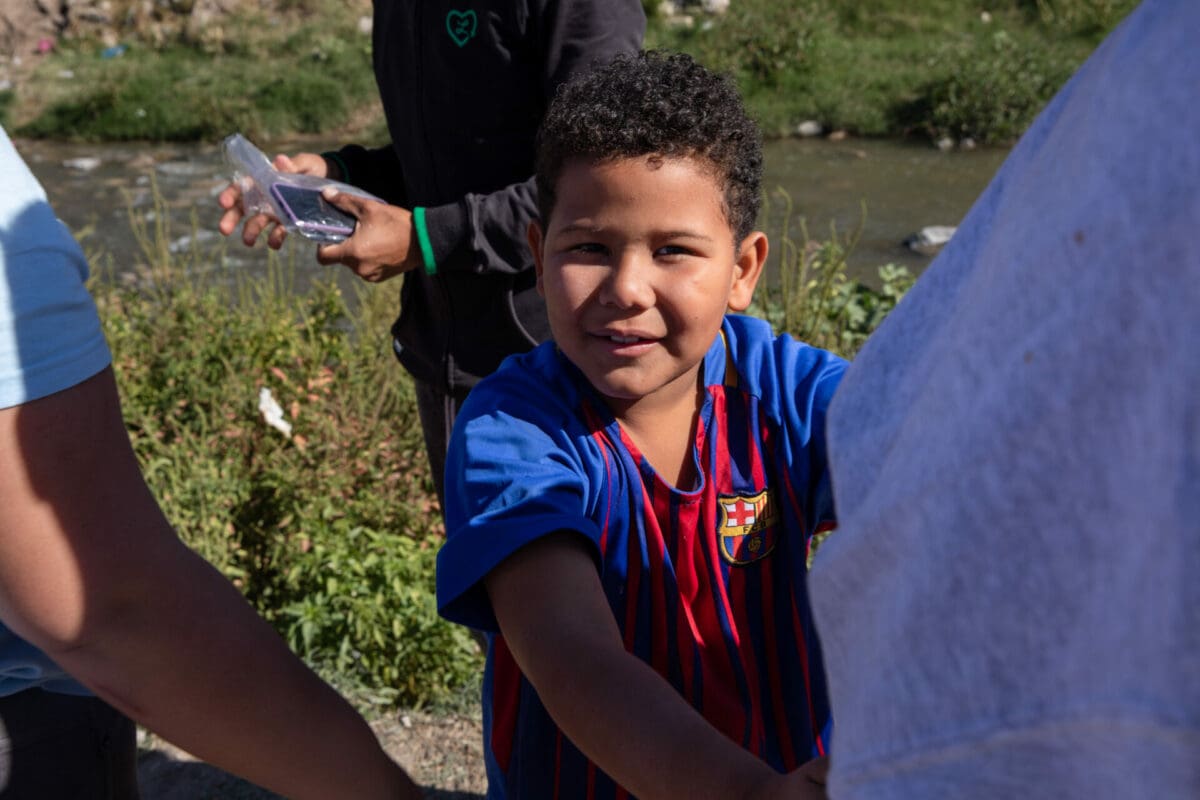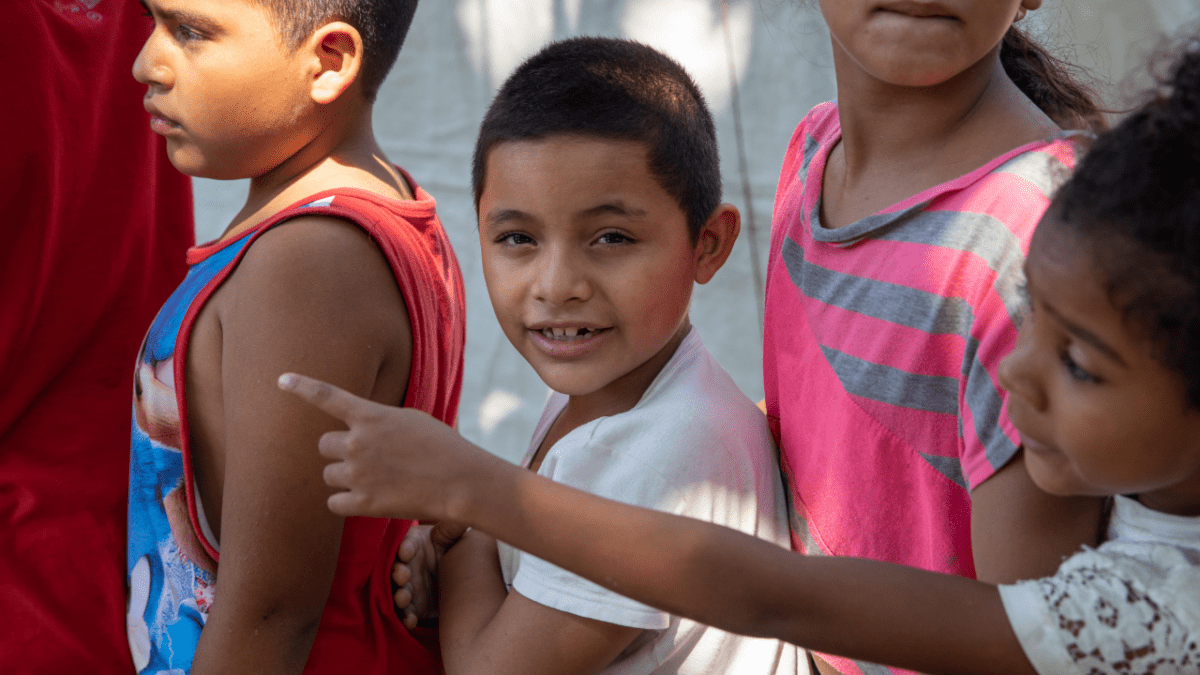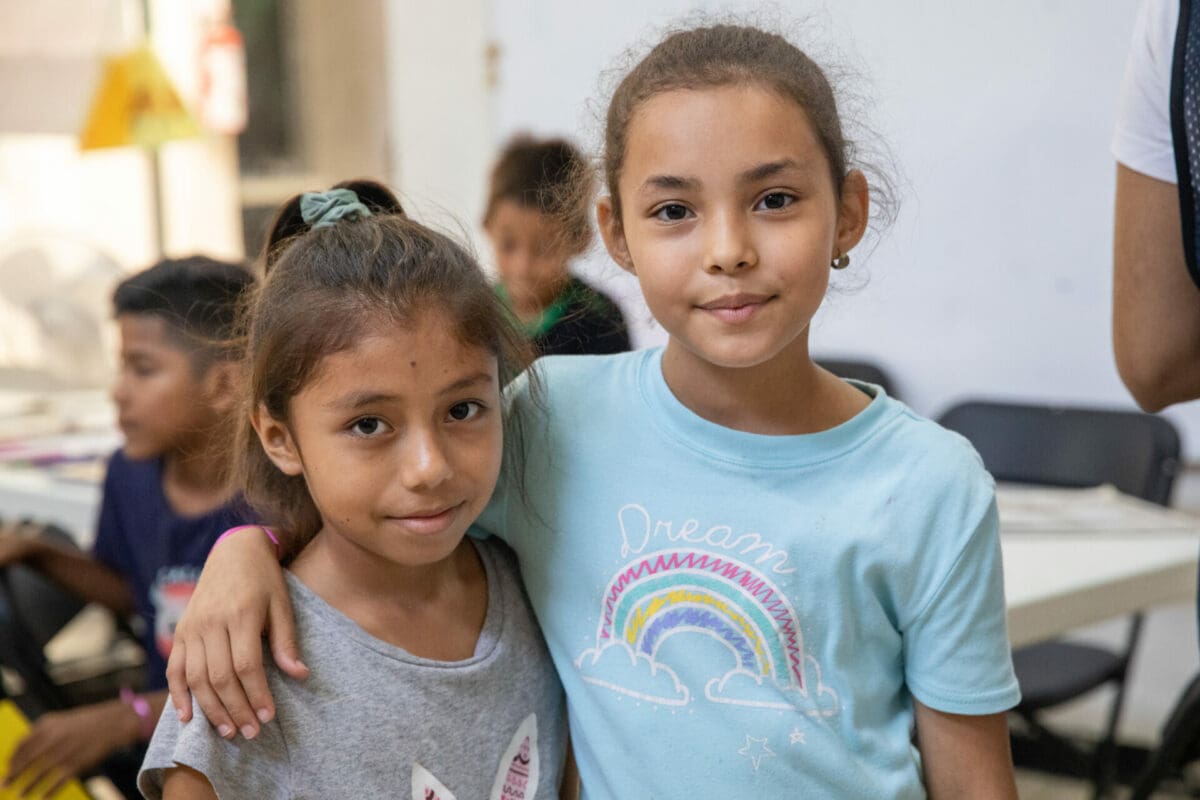Migrant children in Mexico often face many challenges accessing the protection they need in their journey to seek safety. KIND recognized this protection gap and has been working to close it by providing vital legal information and psychosocial services to these children and their families. KIND also teamed up with the International Detention Coalition (IDC) to provide technical assistance to federal, state, and local governments and child protection authorities in Mexico to strengthen their capacity to provide services to these particularly vulnerable children.
KIND’s psychosocial services staff provides group therapeutic sessions to help children increase coping skills, manage the impact of traumatic experiences, and reduce anxiety and fatigue while in shelters. At KIND’s Tapachula office, staff also provide individual therapy for children to help them cope with the difficult experiences they have faced.
KIND staff in our offices in Tapachula and Ciudad Juarez provide Know Your Rights (KYR) workshops to migrant children to share critical legal information about their rights and how to gain refugee status in Mexico. Prior to these sessions, many migrant children do not know about the protection they may be eligible for or how to access it. In a post-session survey, all participants responded positively. One adolescent said, “I learned and understood the procedures of Mexico’s refugee agency and my rights as an applicant.”
Between October 2023 and April 2024, with funding from the U.S. Department of State’s Bureau of Population, Refugees, and Migration, KIND provided group sessions on legal rights to more than 400 people, individual legal orientations to more than 1,000 people, and individual legal services to more than 800 people.
KIND’s Technical Assistance with Mexican Authorities to Promote Child Well-being
In partnership with IDC, KIND has also made progress in our technical assistance work with Mexican officials on how to better protect children. Alejandra Macías Delgadillo, KIND’s first Country Director in Mexico hired earlier this year, and the KIND and IDC teams in Mexico have been training Mexican child protection authorities to implement their national child protection framework effectively. This capacity-building work, also supported by the U.S. Department of State’s Bureau of Population, Refugees, and Migration, has already begun to make an impact. As a result of advocacy by KIND, IDC and other civil society partners, for example, the states of Chihuahua, Tabasco and Veracruz established committees for implementation of Mexico’s national Child Protection Protocol.
In March, KIND’s Advocacy and Partnerships and Trainings teams led a peer learning event with the Attorney General’s office in Chiapas on children’s rights in Mexico attended by forty-five Mexican government authorities representing 17 municipalities. The meeting was a watershed moment, as state and municipal protection authorities showed new leadership and committed to taking specific steps toward further implementation of Mexico’s national Child Protection Protocol in the coming months. Ninety-seven percent of survey respondents shared that the event provided them with new strategies, knowledge and/or skills to perform their position.
In April, KIND and IDC led a capacity-building workshop for 25 people at the Mexican Commission for Human Rights in Veracruz on how to identify the needs and vulnerabilities of migrant children and how to strengthen the protection of their rights in accordance with the best interests of the child. As a result, Mexican Commission for Human Rights personnel acquired skills to identify possible violations of the rights of children and adolescents in mobility and identify common situations of risk in the protection of their rights so that they can provide accurate guidance and information and refer them to the appropriate authorities.
Highlights from KIND Partner International Detention Coalition
In parallel, IDC launched a technical assistance program for residential alternative care centers in Mexico’s southern states aimed at fostering a community of practice in rights-based care, promoting models that avoid replicating a detention scenario and instead support children’s integration and well-being. In June, they hosted a workshop in Acayucan, Veracruz for in-coming personnel for three new public centers due to open along one of the country’s most important child migration routes. IDC led a follow up peer learning exchange in July that afforded personnel responsible for receiving and caring for children in Tabasco, Veracruz, and Chiapas the opportunity to learn and share promising practices in rights-based alternative care.
As we continue to build and expand this work throughout the coming year, we look forward to reaching more children and providing additional trainings to support vulnerable children on the move in Mexico.



